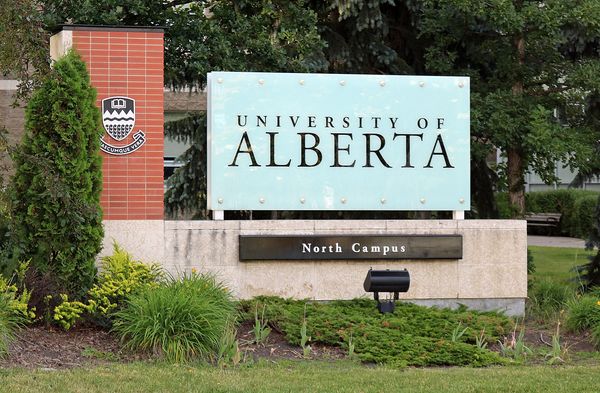As COVID-19 ravages the globe, symptoms of an echo pandemic have already appeared.
The sound of the echo, according to Margaret Eaton, CEO of the Canadian Mental Health Association (CMHA), is phones “ringing off the hook” at support lines across the country. In Nova Scotia, for example, there has already been a significant climb in calls to CMHA, from an average of 25 daily to more than 700. Most of these are coming from Canadians with no history of mental illness.
The long-term effects of this echo pandemic could look like many other “large-scale disasters,” according to the CMHA, as they are “almost always” accompanied by an increase in depression, psychological distress, substance use, post-traumatic stress disorder and domestic violence.
Eaton has noted that many communities have been made even more vulnerable by the pandemic, including persons experiencing homelessness, Indigenous populations and frontline workers.
Another community also comes to mind — one I belong to, which has a preexisting crisis on its hands. Canadian post-secondary students are vulnerable, and if the lack of previous action from universities indicates the level of support they’ll receive going forward, the future is bleak.
The existing mental health crisis on campus
As university websites give glowing self-reviews in their perfectly crafted mental health webpages, tailored conveniently to what parents must want to hear before sending their kid off to school, on-the-ground experience has students reporting a different reality, or in some cases, not returning home. There has been a mental health crisis going on for years at post-secondary institutions across the country.
While there’s no official suicide on Canadian campuses tracker, in 2016 the government reported that it’s the second leading cause of death for those between the ages of 20 to 29.
At the University of Ottawa (uOttawa), six students died in the span of 11 months from 2019 to 2020. In two years, four students died on the University of Toronto’s campus — three in one building alone. At the University of Waterloo, four students have been confirmed to have died by suicide since March 2017. At the University of Guelph, four students have died by suicide since 2016.
According to the Canadian Reference Group’s 2019 report on student health across the country, 52 per cent of students reported that in the last year they “felt so depressed it was difficult to function,” 69 per cent felt “overwhelming anxiety” and 16 per cent “seriously considered suicide,” with 3 per cent attempting.
This reality was made possible in part by a lack of adequate and accessible support on campus. From weeks-long wait times to simply book an appointment for psychological support, to months-long wait times for ongoing counselling, to the tedious process of acquiring academic accommodation that may not even be helpful.
At uOttawa, just 20 counsellors currently serve 40,000 students. As of 2016, just 18 counsellors — double the previous year — served the University of British Columbia’s more than 64,000 students. Students at Dalhousie have also faced a severe shortage of counsellors.
In the meantime, many students are paying out of pocket to seek timely mental health services, while those who can’t afford them are left without options.
The corporatization of universities
This crisis isn’t due to a lack of resources at universities, but rather an absence of willingness to do what’s necessary to save lives. The corporatization of universities has made matters worse, as students are seemingly further deprioritized beneath prestige and financial success.
Ryerson University’s President Mohamed Lachemi graciously confirmed this just last week. After the university announced that tuition fees will remain the same despite most classes being converted to online, Lachemi said in a livestream: “Ryerson must always put long-term economic health as a priority.”
In a March 2018 Conversation article, Rhodes University post-graduate studies director Sioux McKenna wrote about five signs that universities are turning into corporations, including the implementation of “many one-size-fits-all regulatory frameworks which govern every process from admission through to graduation.” McKenna notes this is problematic because it results in a lack of “flexibility to take individual contexts into account in a very uneven society.”
This approach is detrimental for students seeking mental health support. They’re encouraged to just “reach out,” but then robotically told to set an appointment via a Google form. Pleas for help are rejected if they’re not convincing enough. A professor’s subjective feelings about a student determines how much aid they’ll get. If students don’t have documentative proof of a mental illness, they may as well forget the whole thing.
As a result, it’s sometimes easier for students to just try and cope than it is to seek help. I say this from personal experience: the bureaucracy around “academic integrity,” a school’s reputation and the power imbalances at play between you and a professor can be scarier than your struggle.
Campus culture has also mutated as a result of this increasing corporatization. For instance, in 2019, the Ted Rogers Master of Business Administration program at Ryerson University published an advertisement promoting hustle culture over a healthy work-life balance, encouraging pulling “weeks of sleepless nights” and “doing several all-nighters.”
An associate professor and student mental health expert at Ryerson, Corinne Hart, told The Eyeopener that the ad was “completely anti-mental health,” adding, “If you normalize it, you say that that’s the way to do it. [Students] are going to continue that behaviour because if you don’t, you’re stigmatized, you’re not working hard enough, you’re not good enough.”
How universities should respond
Back in March, Brown University professor Nicole Gonzalez Van Cleve sent an email to her students, seeking to “provide a small sense of calm” in light of the many difficulties she acknowledged students are facing. The post was shared widely, with many people expressing that professors like Gonzalez Van Cleve have changed their lives. But most students aren’t lucky enough to see such an empathetic approach from professors when worldwide anxiety collides with student life.
Pages with FAQs, the counselling centre’s phone number and tips on how to manage pandemic-induced stress are currently relatively easy to access on most school websites. Yet we need systemic reform — not mindfulness exercises.
As a student and reporter in touch with the community, I often hear institutional rigidity cited as a major barrier to getting help. Schools simply haven’t been doing the on-the-ground work to aid students. We need more counsellors, training for professors on empathy and staff on how to deal with a student in crisis, and overall personalized approaches to supporting students.
Very few institutions in Canada currently offer identity-specific mental health support. These services are especially vital for immigrants, refugees, people of colour and particularly Indigenous and Black communities, who have an even more complicated experience with mental health programs on campuses.
Moreover, these services can also provide one-on-one support regarding experiences that come with being at universities that have histories of racism and policies — including allowing or increasing police presence on campus that traumatizes and re-traumatizes Black and Indigenous students — that ensure its existence to this day.
These practical steps say something vital to students: that we matter. When a student is courageous enough to seek help, if they’re met with compassion, kindness and consideration for their lived experiences, they might start to believe that the school doesn’t only want their money, but that it genuinely wants to see them succeed.
Without addressing the Canadian education system’s profit and reputation-oriented business model, it’s likely we won’t see much progress in the way students are handled as they navigate the formative years of their lives. If things go on as they were before the pandemic, a part of me knows that more students will die. And we’ll know who had the power to prevent them.
The Canadian Mental Health Association provides programs and resources for Canadians’ mental health. If you are in crisis, you can reach them 24/7, toll-free at 1-833-456-4566, or if you are in Quebec: 1-866-277-3553. Or you can visit www.crisisservicescanada.ca.






